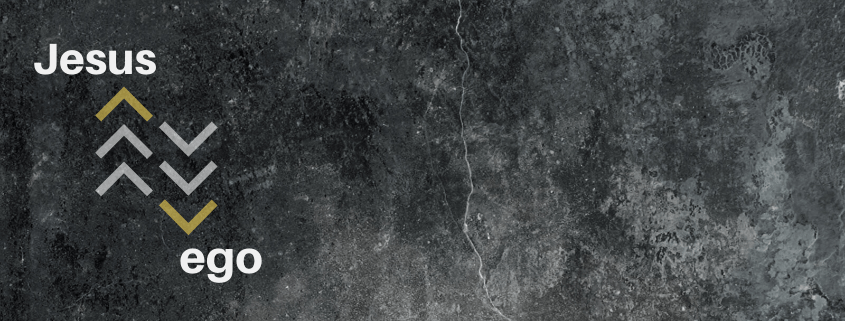It’s been a strange Advent season. Our attention has been focussed outwards on the election and the global climate talks. The practical preparations for Christmas Services make their own demands on clergy and congregations. Thank you for all you give and all you are about to give in welcoming (probably) over 150,000 people to churches across the Diocese on Christmas Eve and Christmas Day. All that I wrote last year in appreciation of the commitment of hundreds of people across the Diocese I want to say again.
But still, some inner reflection and preparation is important. I found myself preaching in St. Mary’s Thatcham on Sunday morning and reflecting on the ministry of John the Baptist and on the part of his character which is sometimes neglected.
John’s Gospel describes the large crowds who follow John the Baptist in the beginning. John is a major figure, a prophet like the prophets of old. He dresses in camel hair with a belt of leather. He eats locusts and wild honey. He preaches with passion and honesty. His message is direct and calls his hearers to repentance and a new beginning. He baptises in the river Jordan, and disciples follow him even though he says he is not God’s Messiah.
But then Jesus appears in Galilee, and he also begins to preach and teach and to baptise and to call disciples to follow him. Jesus heals the sick and calms the storm and changes water into wine. The crowds are looking for the next big sensation. They are hungry and thirsty for meaning, for God’s messenger. Slowly they begin to drift away from John the Baptist and they begin to follow Jesus. John’s popularity begins to wane. He is in trouble with the authorities but not yet arrested.
Some messengers come to John. Here is this new Rabbi. The one you baptised. Here he is baptising and all are going to him. Here is the test for John’s leadership. Will he be pressured by the crowds? Will he be jealous that someone else has more followers? Will he be swayed by the popularity of a competitor? This, not his time in prison, is John’s real moment of testing when his character is weighed in the balance, and we see him as an authentic servant of God.
John passes the test. He cuts through all of this and takes the way of humility. This is his answer to the most difficult question he is asked in his entire ministry:
“No-one can receive anything except what he has been given from heaven. You yourselves are my witnesses that I said, “I am not the Messiah”, but I have been sent ahead of him. He who has the bride is the bridegroom The friend of the bridegroom who stands and hears him, rejoices greatly at the bridegroom’s voice. For this reason, my joy has been fulfilled. He must increase, but I must decrease”.
Focus on those closing words you prepare for Christmas: He must increase, but I must decrease.
The words are remarkable. Ponder them.
They describe John’s whole ministry, but they also describe what it means to be a Christian. John is not the light. We will hear the words of the gospel again in our carol services: But he came to bear witness to the light. The true light which enlightens everyone was coming into the world.
John prepares the way for Jesus through his life and his preaching. But in the end, that mission is not to draw attention to himself but to draw attention to Jesus: Behold the Lamb of God who takes away the sin of the world. I am not worthy to untie the thong of his sandal. John gives away his precedence and his glory and his ambition for himself because John has a clear vision of who Jesus is. John is the servant. Christ is the Master.
The inner questions John faces have not left us. If anything they are even sharper in a world of social media, of instant fame, of rivalries and rifts in families and deep questions of identity, of triumph and disaster. How will we navigate safely? John’s words challenge us, but they also offer us a safe and level pathway: He must increase but I must decrease.
Our purpose in life is not, after all, to point to ourselves, to make a way for ourselves, to push ourselves to the top of the pile, to make sure we are the most followed and the most noticed in our family or school or workplace or church. There is great relief in that truth… once we truly believe it.
Our purpose in life is to point to someone else, to Jesus, to the Son of God, who has come into the world, to the Lamb of God who takes away the sins of the world, to the light which shines in the darkness and the darkness has never overcome it.
Through all the length of our life’s journey, at each stage of that journey, however long we might live, John’s words are our watchword: He must increase, but I must decrease.
By the grace of God, through the work of the Spirit, Jesus comes not only to save us and bring forgiveness and a new beginning. Jesus comes also to change us and renew us and transform us from within. We are called to reflect more and more the character of Jesus, the fruits of the Spirit: to carry within us love and joy and peace, patience, kindness, goodness, faithfulness, gentleness and self-control. He must increase, but I must decrease.
So in this season of Advent, as we come to the end of the year, as we prepare our hearts to celebrate the coming of God’s Son, let me offer you a spiritual exercise. Set aside a little time this week to be quiet and alone. Look back over this past year. Give thanks for all that has been good. Offer to God all that has been difficult. And ask yourself these questions:
- Where do you see an increase of faith and hope and love in your life this year?
- Where do you see Jesus increasing and the old you growing smaller?
- Where are you aware of being more Christ-like: more contemplative, compassionate and courageous?
- Where do you think you have pointed clearly to Jesus, the Lamb of God.
- Where do you think you have pointed only to yourself?
By God’s grace, for most of us, there will be areas and moments of grace: where we really have become more full of faith and hope and love. For most of us, there will be areas and moments too where we have moved in the opposite direction: we have increased and Jesus has decreased in us.
Advent is the time to set that right following the pattern of the Baptist. We need to prepare our hearts again and see them cleansed and set right. Come to the waters. Seek God’s washing and cleansing and forgiveness. Lay aside the pride and the ego and the desire to be first. Embrace again the way of humility. Say with John: He must increase, and I must decrease. For this is the way of the disciple and the way of joy.
+Steven Oxford
December 2019



